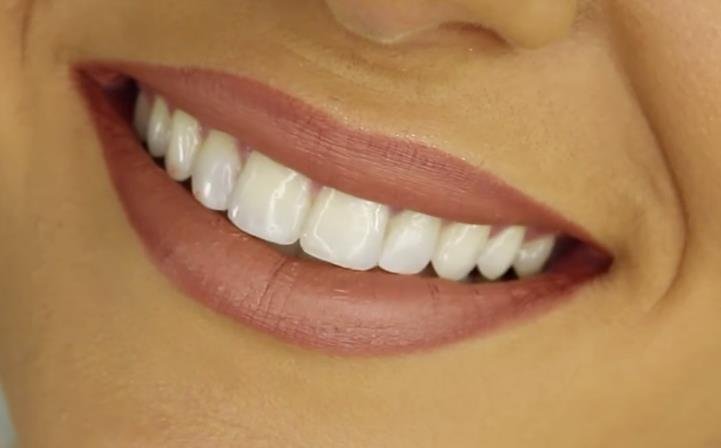Marijuana legalization is spreading across the US, but what does it mean for your oral health? According to experts, cannabis use can pose various risks to your teeth and gums, such as dry mouth, cavities, gum disease, and oral cancer. However, there are also ways to prevent and minimize these risks, such as being honest with your dentist, avoiding smoking, and maintaining good oral hygiene. Here are some tips on how to navigate dental care in the age of legal weed.
Cannabis, or marijuana, is a plant that contains psychoactive compounds, such as tetrahydrocannabinol (THC) and cannabidiol (CBD), that can affect the brain and the body. Cannabis can be consumed in different ways, such as smoking, vaping, eating, or applying topically. Depending on the mode and frequency of use, cannabis can have various effects on the oral cavity, such as:

- Dry mouth: Cannabis use can reduce saliva production, leading to a condition known as xerostomia, or dry mouth. Saliva plays a vital role in protecting the teeth and gums from bacteria, acids, and plaque. Without enough saliva, the risk of tooth decay, gum disease, and bad breath increases.
- Cavities: Cannabis use can also increase the consumption of sugary foods and drinks, which can erode the enamel and cause cavities. Smoking cannabis can also stain the teeth and make them more sensitive to temperature and pressure.
- Gum disease: Cannabis use can impair the immune system and the inflammatory response, making the gums more prone to infection and inflammation. Smoking cannabis can also damage the blood vessels and reduce the blood flow to the gums, affecting their healing and regeneration.
- Oral cancer: Cannabis use can increase the risk of developing oral cancer, especially when combined with tobacco use. Smoking cannabis can expose the mouth to carcinogens and irritants, which can damage the DNA and cause abnormal cell growth. Cannabis use can also delay the diagnosis and treatment of oral cancer, as it can mask the symptoms and interfere with the effectiveness of chemotherapy and radiation.
The dental care implications of cannabis use
Cannabis use can affect the dental care of patients in various ways, such as:
- Communication: Cannabis use can impair the cognitive and motor functions of patients, making it difficult for them to communicate with their dentists and follow instructions. Cannabis use can also affect the perception of pain and anxiety, which can influence the choice and dosage of anesthesia and sedation.
- Medication: Cannabis use can interact with some medications that are commonly used in dentistry, such as antibiotics, antifungals, anticoagulants, and opioids. Cannabis use can also affect the metabolism and clearance of these drugs, altering their efficacy and safety.
- Complications: Cannabis use can increase the risk of complications during and after dental procedures, such as bleeding, infection, dry socket, and delayed healing. Cannabis use can also affect the quality and durability of dental materials, such as fillings, crowns, and implants.
The prevention and minimization of cannabis-related oral risks
Cannabis use does not have to ruin your oral health, as long as you take some preventive and corrective measures, such as:
- Honesty: Be honest with your dentist about your cannabis use, as it can affect your dental care and treatment. Your dentist will not judge you or report you, but will help you to maintain your oral health and avoid any potential risks or complications.
- Abstinence: Avoid using cannabis before and after your dental appointments, especially if you are undergoing procedures that involve anesthesia or sedation. Cannabis use can interfere with the effects and safety of these drugs, and can also impair your judgment and ability to consent. Ideally, abstain from cannabis use for at least 72 hours before and after your dental visits.
- Alternatives: Consider using alternative modes of cannabis consumption, such as edibles, oils, or tinctures, instead of smoking or vaping. These modes can reduce the exposure of your mouth to heat, smoke, and carcinogens, and can also help you to control the dosage and timing of your cannabis use.
- Hygiene: Maintain good oral hygiene habits, such as brushing your teeth twice a day, flossing daily, and rinsing with fluoride mouthwash. These habits can help you to prevent and remove plaque, bacteria, and acids from your teeth and gums, and to keep your mouth moist and fresh.
- Visits: Visit your dentist regularly for check-ups and cleanings, at least twice a year, or more often if you have any oral problems or concerns. Your dentist can monitor your oral health, detect and treat any issues, and provide you with advice and recommendations on how to improve your oral care.
Maria Garcia is an award-winning author who excels in creating engaging cannabis-centric articles that captivate audiences. Her versatile writing style allows her to cover a wide range of topics within the cannabis space, from advocacy and social justice to product reviews and lifestyle features. Maria’s dedication to promoting education and awareness about cannabis shines through in her thoughtfully curated content that resonates with both seasoned enthusiasts and newcomers alike.








